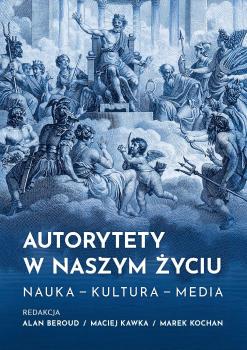Oblicza autorytetu w dyskursie pedagogicznym .......... 123
Streszczenie
Celem analiz, których wyniki przedstawiono w tekście, była rekonstrukcja sposobów ujmowania autorytetu w dyskursie pedagogicznym. Pedagogiczny sens rozumienia autorytetu rozpatrywano w odniesieniu do pedagogiki w ujęciu współczesnym, której przedmiotem jest szeroko rozumiana edukacja: jako szereg procesów i dyskursów edukacyjnych i jako proces całożyciowy, otwarta na całą kulturę – potencjalną przestrzeń spotkania z autorytetem. Wśród istotnych dla pedagogicznego myślenia o autorytecie edukacyjnych zmian wyróżniono przejście z procesu nauczania na uczenie się (inicjatywa po stronie podmiotu uczącego się, wymóg osobistego zaangażowania) oraz zmianę w roli uczonego, pedagoga – z kierującego celowościowymi procesami edukacyjnymi kształcenia i wychowania „prawodawcy” na „tłumacza”, czyli jednego z wielu podmiotów tworzących rzeczywistość społeczną. W odniesieniu do pedagogiki rozumianej współcześnie, za Teresą Hejnicką-Bezwińską, przyjęto tezę o braku jednej, uniwersalnej pedagogii, a co za tym idzie: braku uniwersalnego wzoru autorytetu. Takie ujęcie zauważalnie koresponduje z podejściem do autorytetu proponowanym przez Lecha Witkowskiego, podkreślającym umiejętność nawiązania wartościowej, osobistej relacji ze „znaczącym Innym”, z „wielkimi duchami kultury”. Na pytanie o to, w jaki sposób autorytet jest przedstawiany we współczesnym dyskursie pedagogicznym, pozwoliły odpowiedzieć krytyczna analiza oraz interpretacja źródeł. Korpus materiałów składał się z tytułów naukowych publikacji i tekstów pedagogicznych (monografii, prac zbiorowych, rozdziałów w pracach zbiorowych, artykułów z czasopism) wydanych po 2000 r. i zbieranych do maja 2024 r. (łącznie 232 pozycje). Wyniki analiz pozwalają dostrzec dwa kluczowe oblicza autorytetu, łączonego – przede wszystkim przez osobę nauczyciela – z instytucją szkoły oraz z domeną rodziny. Podmiotem oddziaływań najczęściej jest młodzież. Dominujące sposoby przedstawiania autorytetu w analizowanych tytułach łączą się wyraźnie z celowościowym procesem edukacyjnym wychowania. Interpretacja zawiera odczytanie wyników analiz przez pryzmat wyróżnionych przez Witkowskiego „zabobonów” w myśleniu o autorytecie. Część tę uzupełnia – przywołana za autorem – propozycja „nowego profilu autorytetu dla pedagogiki”, którego wyznaczniki osobiście pojmowanej relacji ze znaczącym Innym ukazane są jako warte edukacyjnego rozważenia i popularyzowania, nie tylko wśród młodzieży.





